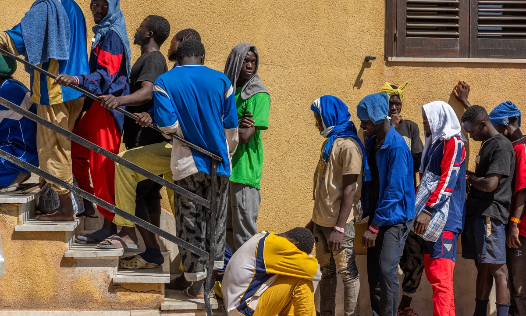Payment is being processed. Please do not refresh or close this page until your payment is complete.
 Book an Appointment
Book an Appointment

Irregular migrant crossings into Europe decreased by 30% in the first quarter of 2025 compared to the same period in 2024, according to Frontex, the European Union's border agency. This decline amounts to nearly 33,600 fewer arrivals across all major migratory routes.
Key Highlights:
• Balkan Routes: The most significant reduction occurred along the Balkan routes—through Albania, Serbia, Montenegro, and North Macedonia—with a 64% decrease.
• UK Crossings: Attempts to cross into the United Kingdom fell by 4%.
• Central Mediterranean Route: Contrary to the overall trend, the Central Mediterranean route saw an increase in activity, with a 43% rise in arrivals in January 2025 compared to the same month in 2024. This route remains a significant corridor for migrants, particularly from Libya.
Contributing Factors:
The decline in irregular crossings is attributed to several factors:
• EU Deterrence Policies: Rights groups suggest that EU policies emphasizing deterrence have contributed to the reduction. However, they caution that such policies may lead to increased human rights violations and riskier migration paths.
• Cooperation with Non-EU Countries: Enhanced cooperation between the EU and countries like Tunisia and Libya has led to more interceptions of migrant boats attempting to cross into Europe.
Humanitarian Concerns:
Despite the overall decrease, humanitarian organizations express concerns over the EU's current migration strategy:
• Human Rights Violations: Reports indicate that migrants face abuse and dangerous conditions in countries with which the EU has migration agreements, such as Libya and Tunisia.
• Migrant Fatalities: The International Organization for Migration (IOM) estimates that at least 555 migrants died in the Mediterranean and Atlantic in early 2025. Over the past decade, approximately 3,500 children have died or disappeared in the central Mediterranean.
Conclusion:
While the reduction in irregular migrant crossings into Europe in early 2025 reflects the impact of EU policies and international cooperation, it also raises significant humanitarian concerns. Balancing border security with the protection of migrants' rights remains a critical challenge for the European Union.